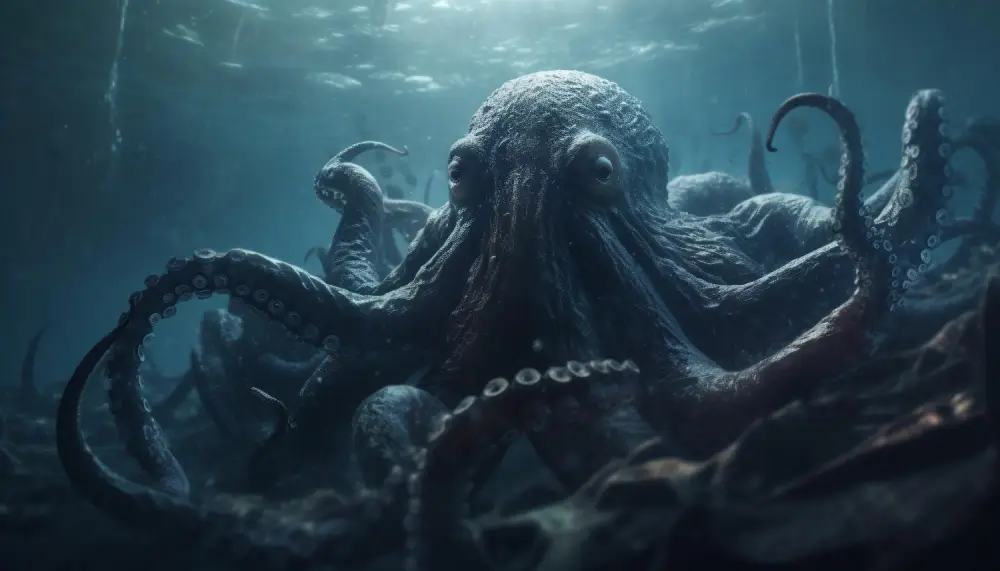The idea that octopuses are "aliens" due to their unique DNA has been proposed in popular science articles and speculative discussions. This concept is based on the distinct genetic makeup of octopuses compared to other animals. Octopuses belong to the class Cephalopoda, which is evolutionarily distant from most other animals, including vertebrates like humans.
The genetic divergence of octopuses has led some scientists to suggest that they might have evolved separately from a common ancestor shared with other animals, possibly indicating a separate origin of life. This hypothesis, often referred to as "panspermia," speculates that life on Earth might have originated from extraterrestrial sources, such as through the seeding of planets by comets or meteorites carrying organic molecules.
While octopuses do have unique genetic traits, and their evolutionary history is still not fully understood, there is currently no concrete evidence to support the claim that they are definitively "alien" in origin. The term "alien" in this context is used more metaphorically rather than suggesting that octopuses are extraterrestrial organisms.
In scientific discourse, the term "alien" typically refers to any organism that is foreign or unfamiliar in a particular context, rather than implying an extraterrestrial origin. While the genetic peculiarities of octopuses are intriguing and continue to be studied, further research is needed to fully understand their evolutionary history and relationship to other organisms on Earth.
What are the special characteristics of an octopus?
Camouflage
Octopuses possess an exceptional ability to blend in with their environment by altering the color, texture, and pattern of their skin. They can accomplish this because of specialized cells known as leucophores, iridophores, and chromatophores.
Flexible body
The bodies of octopuses are soft and flexible, lacking any kind of internal or external skeleton. Their ability to bend allows them to fit through small openings and sculpt their bodies into many forms.
Eight arms with suckers
Octopuses can move around, catch prey, and manipulate objects with their eight powerful arms lined with suckers. The sensory cells in each sucker give the octopus information about its surroundings.
Extremely intelligent
Some of the most sophisticated invertebrates are said to be octopuses. They display sophisticated behaviors as well as the capacity to learn and solve problems. It has been documented that octopuses utilize tools, negotiate mazes, and even engage in playful behavior.
Regenerative powers
Octopuses can restore damaged limbs thanks to their remarkable regenerative powers. An octopus can eventually grow back an arm if it loses one.
Jet propulsion
Octopuses use a muscular funnel to force water out of their body, allowing them to travel quickly through the water. This gives them the agility to chase prey or flee from predators.
Complex nervous system
Most of the neurons in an octopus's highly evolved nervous system are found in its arms. Somatosensory perception and coordinated movement are made possible by this dispersed nerve system.
What type of creature is an octopus?
An octopus is a type of marine invertebrate belonging to the class Cephalopoda. Cephalopods are a group of mollusks characterized by their bilateral symmetry, prominent head, and well-developed nervous system. Other members of the cephalopod class include squids, cuttlefish, and nautiluses. Octopuses are known for their unique features such as their eight arms (not tentacles) with suction cups, highly flexible bodies, remarkable camouflage abilities, and complex behaviors. They are considered some of the most intelligent invertebrates, capable of problem-solving and exhibiting sophisticated hunting techniques.




